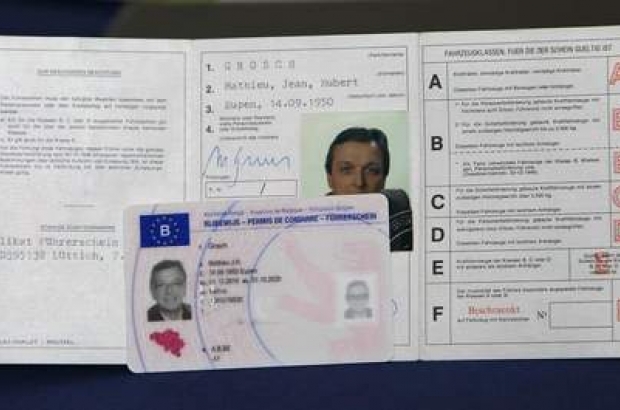- Daily & Weekly newsletters
- Buy & download The Bulletin
- Comment on our articles
Driving in Belgium: Exchanging your driving licence
Be it for a new job or a yearning for maximum flexibility in your day-to-day life, you are thinking about getting behind the wheel and driving a car in Belgium.
Here's what you need to know (and do) before getting into the driver's seat.
Out on the open road?
Before you proceed further in this process, a word of warning: while a car gives more freedom, it does not necessarily get you to your final destination quicker. Belgium is notorious for traffic jams, hour-long rush hours and overcrowded highways. This applies even during weekends and holidays. In addition, navigating Belgium’s bureaucratic hurdles in order to adhere to regulations can be costly and time-consuming. So, really, think long and hard about whether a car is the best option for your commuting needs.
Exchanging your driving licence:
Whether your licence is European or non-European, it is important to know that if you have not taken up official residency in Belgium (in other words, you're not carrying a Belgian residence card) then you are allowed to drive in Belgium with your national licence for the duration of your short stay.
Otherwise, for expats officially residing in Belgium, different rules apply for exchanging your licence depending on where you acquired it.
Driving licence from EEA countries: For expats in Belgium from European Economic Area countries (EU plus Iceland, Norway and Lichtenstein), there is no need to exchange your licence. The Belgian government does recommend, however, that you register your national licence at your local town hall. In the case your licence is lost or stolen, the Belgian government will then replace it with a Belgian licence (given you have official residency).
Getting the process started: Head to your commune with your licence and a passport photograph. The process tends to go quickly for EEA driving licences.
Driving licence from Non-European (EEA) countries: Some non-EEA countries (among them the US, Canada and Australia) have reciprocal agreements with Belgium that allow you to exchange your licence for a Belgian equivalent rather easily (provided you’re registered in a commune). You can check if your country’s on the list here.
If your country does not have such an agreement with Belgium, you’ll be required to pass a driving examination – comprising a theoretical and practical test. The Examination Centre (GOCA or SBAT) can arrange English versions of the theory exam, although it is recommended to book well in advance. The Belgian government will grant a one-year grace period for those needing to pass a Belgian driving test, as long as they’re holding a International Driving Permit (along with their original driving licence) at all times.
Getting the process started: Head to your commune with your licence, a passport photograph and money (€26 as of June 2014) to cover the application fee. The commune has the right to ask for an official translation of the licence as well (for English it should be OK). The commune will then keep your licence for processing, which can take from two weeks to two months. So be sure to ask for a temporary licence if needed.
Rules of the road:
Even if you don’t have to pass a driving test for a Belgian licence, we would highly recommend going over Belgium’s rules of the road to avoid a costly driving fine (or accident). Our article on Braving the Roads in Belgium and AngloInfo provide good summaries in English of Belgian driving regulations, including rules of the road and materials that you must have in your car at all times.
Some notable differences compared to other countries include:
- No right turn on red
- Driving on the right side
- Priority is given to the right: drivers must stop for traffic joining from the right. This rule means that cars coming from the right always have priority, unless a yellow diamond sign or other priority road sign has been posted. This does not apply on motorways, roundabouts, and roads signposted with an orange diamond on a white background
- No using mobile phones (unless hands-free system)
- Priority is given to pedestrians at pedestrian crossings
















Comments
Hello,
I am currently in the process of having my Australia licence exchanged for a BE one. I was told that once you are registered in a commune, the AU licence is no longer valid as you are no longer a temporary visitor (but totally fine for an exchange - go figure) and not recognised in the EU. Thus, upon surrendering my AU licence I am not eligible to recieve a temporary licence for during this processing time (I've been told 6 weeks, at least) and am prohibited from driving for this time.
I contacted others (including The AU embassy and my HR department here in BE) and nobody had a clue. I'm not sure if it's a 'commune thing' or this is standard across all of BE.
I hope my experience can help others plan their lives accordingly. Good luck.
@INDIECINDY I'm having the same problem right now!
It's crazy how rigid they made this whole process..
Now I have to go through a daily 5 hours trip because I can't use my car :(
This is SO unfair! Expecting people who become residents to go without a driver's license for several weeks! There is no logical reason that our old license can't remain valid until the new one is issued. Beware! From what I've read, even if a so-called 'temporary license' is provided, in the eyes of the law it is useless. You will apparently will be treated as if you are driving with no license, and your insurance company or rental car company will not cover you! Here is an article I found...I hope this ridiculous process will be amended soon! https://abra-relocation.com/wp-content/uploads/2017/12/ReLocate_4_2017.pdf